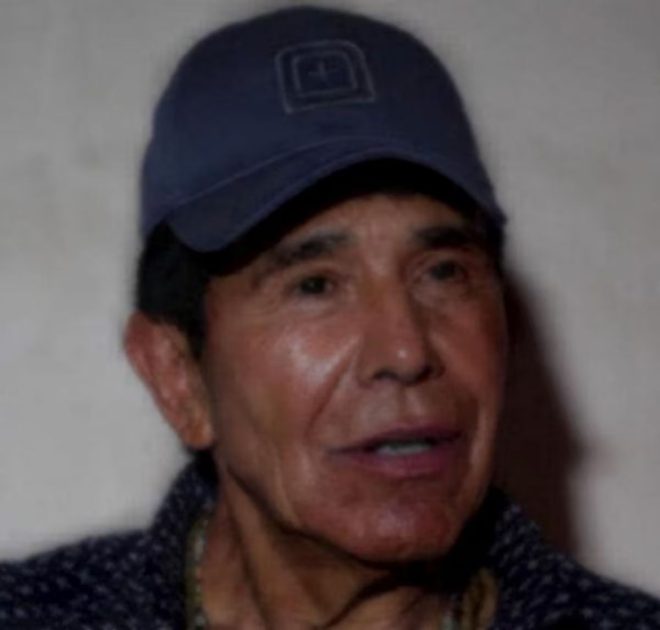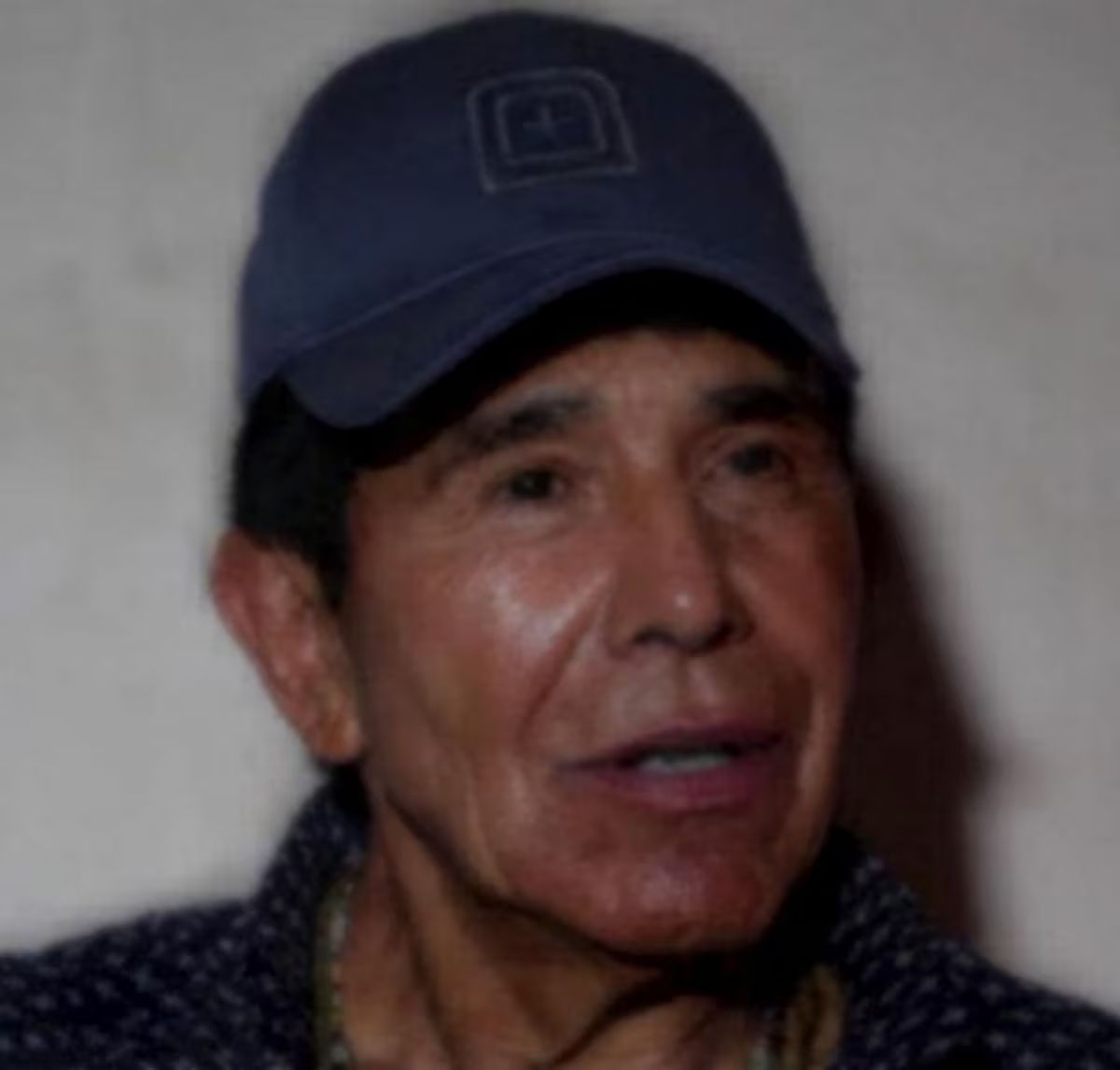
Mexico Extradites Cartel Leaders to the U.S. Amid Tariff Threat
In a significant development in the ongoing battle against drug cartels, Mexico has extradited nearly 30 cartel leaders to the United States. This decisive action includes prominent figures from notorious organizations such as the Jalisco New Generation Cartel (CJNG) and the Sinaloa Cartel. The extraditions come in response to increasing pressure from former President Donald Trump, who has threatened to impose tariffs on Mexican goods unless the country takes more robust measures against drug trafficking.
Background of the Extraditions
The extradition of these cartel leaders marks a pivotal moment in the U.S.-Mexico relationship concerning drug enforcement. Historically, Mexico has been criticized for its slow pace in extraditing high-profile drug traffickers to the U.S. However, the recent actions indicate a shift in policy, possibly influenced by the looming threat of tariffs. This move reflects Mexico’s commitment to combating drug-related violence and addressing the concerns of its northern neighbor.
Key Figures Extradited
Among those extradited are several high-ranking members of the Jalisco New Generation Cartel and the Sinaloa Cartel. The CJNG has been particularly notorious for its violent tactics and rapid expansion in the drug trade. Meanwhile, the Sinaloa Cartel, once led by the infamous Joaquín "El Chapo" Guzmán, continues to be a significant player in the drug trafficking landscape, even after Guzmán’s imprisonment.
The extradition of these leaders is expected to disrupt the operational capabilities of these cartels and provide U.S. law enforcement agencies with valuable intelligence about their networks. It also serves as a warning to other cartel leaders that they could face similar fates if they continue their criminal enterprises.
- YOU MAY ALSO LIKE TO WATCH THIS TRENDING STORY ON YOUTUBE. Waverly Hills Hospital's Horror Story: The Most Haunted Room 502
The Impact of Tariff Threats
Donald Trump’s administration had previously employed tariffs as a means of leveraging foreign policy, particularly concerning immigration and drug trafficking. The threat of tariffs can significantly impact Mexico’s economy, which is heavily reliant on trade with the United States. By pressuring Mexico to extradite cartel leaders, Trump aims to create a more cooperative effort in the fight against drug trafficking.
Experts believe that the threat of tariffs has acted as a catalyst for these recent extraditions. The financial implications for Mexico could be severe, prompting the government to take more aggressive actions against cartels to maintain a stable economic relationship with the U.S.
The Role of U.S.-Mexico Relations
The extradition of cartel leaders is a testament to the complex and often contentious relationship between the United States and Mexico. While both countries share a common goal of combating drug trafficking and organized crime, their approaches and the political dynamics at play can complicate efforts.
In recent years, Mexico has faced intense scrutiny over its handling of drug violence and cartel activity. The country’s president has vowed to tackle these issues head-on, but the effectiveness of their strategies has often been questioned. The extradition of cartel leaders may signal a renewed commitment to addressing these challenges, particularly in the face of external pressures.
Future Implications
The extradition of these cartel leaders could have far-reaching implications for both countries. For the U.S., it represents a potential opportunity to dismantle significant drug trafficking operations and reduce the flow of illegal substances across the border. For Mexico, it could signify a turning point in its approach to organized crime, demonstrating that the government is willing to take bold steps to address the influence of powerful cartels.
However, the situation remains precarious. Cartels have historically shown resilience and adaptability, often finding ways to reorganize and continue their operations even after the loss of key leaders. Therefore, continued collaboration between the U.S. and Mexico will be essential to ensuring that these extraditions lead to a long-lasting impact on drug trafficking.
Conclusion
The recent extradition of nearly 30 cartel leaders from Mexico to the U.S. represents a crucial step in the ongoing fight against organized crime and drug trafficking. Influenced by the threat of tariffs from the Trump administration, Mexico’s actions demonstrate a willingness to confront the challenges posed by powerful cartels. As the situation develops, the collaboration between the two nations will be vital in addressing the complexities of drug trafficking and ensuring a safer future for both countries.
This significant move not only aims to disrupt the operations of the Jalisco New Generation and Sinaloa cartels but also underscores the importance of international cooperation in tackling global issues like drug trafficking and organized crime. The coming months will be critical in determining the long-term effects of these extraditions and the ongoing efforts to combat drug-related violence.

BREAKING: MEXICO EXTRADITES CARTEL LEADERS TO U.S. AMID TRUMP’S TARIFF THREAT
Mexico has extradited nearly 30 cartel figures to the U.S., including key members of the Jalisco New Generation and Sinaloa cartels.
The move comes as Trump pressures Mexico with tariff… https://t.co/JSBE1Glt9M pic.twitter.com/6WL5AwGwKu
— Mario Nawfal (@MarioNawfal) February 28, 2025
BREAKING: MEXICO EXTRADITES CARTEL LEADERS TO U.S. AMID TRUMP’S TARIFF THREAT
You might have caught wind of the latest news swirling around the Mexico-U.S. border: Mexico has extradited nearly 30 cartel figures to the U.S. This includes some of the most notorious members of the Jalisco New Generation and Sinaloa cartels. The timing of this significant move is particularly interesting as it coincides with former President Trump exerting pressure on Mexico through the threat of tariffs. Let’s dive into what this all means and the implications it holds for both countries.
Understanding the Context of the Extradition
The extradition of these cartel figures isn’t just about law enforcement; it’s a complex interplay of politics, economics, and international relations. In recent years, Mexico has faced immense pressure to combat drug trafficking and organized crime. The Jalisco New Generation and Sinaloa cartels have been central to the drug trade in North America, contributing to rising violence and instability in Mexico. The U.S., understandably, has been keen to see these figures brought to justice, especially as drug-related violence spills over into its borders.
Now, when you think about the timing of these extraditions, it’s hard to ignore the backdrop of Trump’s tariff threats. In this scenario, the former President has been vocal about using economic pressure to get Mexico to step up its game against cartels. This tactic raises eyebrows, as it intertwines economic sanctions with law enforcement objectives.
The Jalisco New Generation and Sinaloa Cartels: A Brief Overview
Before we get into the nitty-gritty of the extraditions, let’s briefly touch on who these cartels are. The Jalisco New Generation Cartel (CJNG) is known for its brutal tactics and rapid expansion in Mexico’s underworld. They’ve been linked to various violent incidents and are often considered one of the most powerful criminal organizations in the country.
On the other hand, the Sinaloa Cartel has a long-established history in the drug trade. Once led by the infamous Joaquín “El Chapo” Guzmán, this organization has been pivotal in the trafficking of drugs like cocaine, heroin, and methamphetamine into the United States. With both of these organizations being extradited, it highlights a united front against drug trafficking by both nations.
What Does the Extradition Mean for the U.S. and Mexico?
So, what’s the significance of Mexico extraditing nearly 30 cartel leaders to the U.S.? For starters, it sends a strong message that Mexico is serious about tackling organized crime, especially when it comes to international cooperation. The U.S. has been advocating for stricter measures against drug trafficking for years, and this move could be seen as a step in the right direction.
From a legal standpoint, these extraditions mean that the cartel leaders will face charges in U.S. courts, which often come with harsher penalties compared to what they might face in Mexico. This could potentially lead to longer sentences and a more robust legal framework for prosecuting drug-related crimes.
Moreover, by extraditing these figures, Mexico is also signaling to its citizens and the international community that it is taking a stand against corruption and organized crime. This is particularly important in a country where trust in law enforcement and government institutions can be shaky.
The Economic Ramifications of Tariff Threats
Let’s talk about the elephant in the room: the tariff threats from Trump. The idea behind using tariffs as leverage against Mexico is to force the hand of its government to take more aggressive action against drug cartels. It’s a high-stakes game, and while it may yield immediate results, it also creates a ripple effect in economic relations between the two countries.
Tariffs could lead to increased prices for goods, impacting consumers on both sides of the border. The interconnectedness of the U.S. and Mexican economies means that any economic pressure can have widespread repercussions. Businesses relying on cross-border trade might face difficulties, which could lead to job losses and decreased economic activity.
However, the question remains: will these tactics ultimately lead to a sustainable solution in the fight against drug trafficking? While the extradition of cartel leaders is a step forward, the underlying issues of poverty, corruption, and demand for drugs in the U.S. remain unaddressed.
The Future of U.S.-Mexico Relations
Looking ahead, this recent development raises questions about the future of U.S.-Mexico relations. Historically, these two nations have had a complicated relationship, often centered around trade and security. The extradition of cartel leaders could pave the way for more collaborative efforts in addressing organized crime, but it also risks straining relations if economic pressures continue.
As both countries navigate these challenges, the focus must shift from punitive measures to comprehensive strategies that address the root causes of drug trafficking. This includes investing in education, economic opportunities, and community programs to deter individuals from becoming involved in cartel activities.
Public Reaction and Impact on Society
The public reaction to the extradition news has been mixed. Many citizens in both countries see it as a positive step towards justice, while others are skeptical about its long-term effectiveness. The reality is that while extraditing cartel leaders might bring temporary relief, it doesn’t solve the larger societal issues at play.
In Mexico, the effects of cartel violence have permeated everyday life, affecting communities and families. The hope is that with the removal of these key figures, there will be a decrease in violence and a more stable environment for citizens. However, history has shown that when one leader falls, another often rises to take their place.
In the U.S., the focus tends to be more on the legal and political implications of these extraditions. For many, it’s a chance to see justice served, but the underlying issues of drug addiction and trafficking continue to loom large.
Conclusion: A Complex Tapestry
In summary, the extradition of nearly 30 cartel leaders from Mexico to the U.S. is a significant event that reflects ongoing struggles against organized crime and drug trafficking. The interplay of economics, politics, and law enforcement creates a complex tapestry that both countries must navigate carefully.
With Trump’s tariff threats hanging in the balance, the future of U.S.-Mexico relations remains uncertain. The hope is that this latest move will lead to a more coordinated effort to address the issues at hand, paving the way for safer communities on both sides of the border.
As we keep an eye on these developments, it’s essential to remember that the fight against drug trafficking is far from over. The recent extraditions might be a step forward, but lasting solutions will require a more nuanced approach that addresses the root causes of crime and violence.
